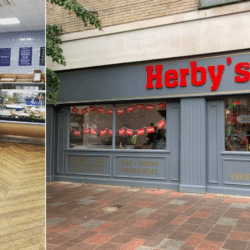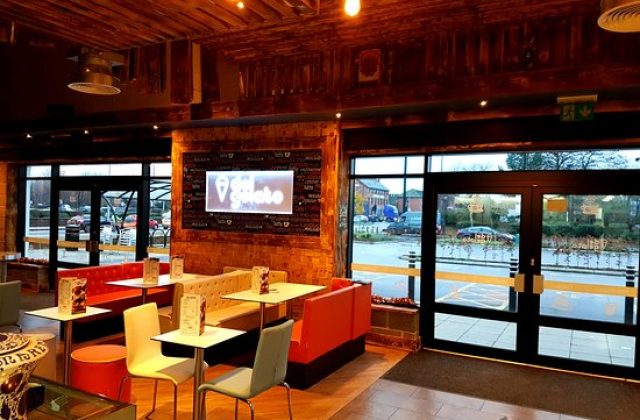Whatever home you live in and wherever you are in Hull & East Yorkshire, everyone wants to make their home more eco-friendly. Not only is it good for the planet, but it will help you keep an eye on savings.
One of Hull & East Yorkshire’s local plumbing, heating & gas engineers – Kesselmann Plumbers – have given us their top tips on how to make your home more green right now.
Paul Tozer, Director and Gas Service & Repair Engineer at this trusted local independent plumbing company, has shared his wealth of knowledge and experience with us to help local homeowners embrace sustainable practices that not only benefit the environment but also lead to significant cost savings.
Paul’s top tips for greening your home



As a heating engineer with 20 years of experience servicing boilers across Hull and East Yorkshire, there’s one question I hear a lot from our customers when I’m servicing their boiler: “How can I cut down on my energy use?”
It’s evident that the interest goes beyond simply wanting to save money on bills; many are looking towards adopting a more sustainable lifestyle. Throughout my career, I’ve learned a thing or two about making heating systems more efficient, which not only helps homeowners reduce their gas bills but also maintains the comfort of warmth.
In this article, I’m keen to share those insights and tips, aiming to assist you in making your home more energy-efficient and your energy bills more manageable.
1. Hot Water Temperature Optimisation

A frequent opportunity for energy saving lies in adjusting hot water temperatures. For daily routines like taking baths, showers, or doing the dishes, a water temperature around 38-40°C is generally adequate. So, one must wonder, why set our hot water any hotter?
Fine-tuning your hot water settings slightly above this range can significantly reduce energy consumption and, consequently, lower your bills.
For those with stored hot water, such as a cylinder, there’s an additional consideration. It might be beneficial to increase the temperature to around 65 degrees once per week, commonly referred to as disinfecting.
While the likelihood is incredibly low—akin to winning the lottery twice in one week—this disinfection process eliminates any potential risk of Legionnaires’ disease forming in the hot water system.
Legionnaires’ Disease: Legionnaires’ disease is a form of pneumonia caused by inhaling the Legionella bacteria, typically found in water droplets. Though the risk is minimal in domestic settings, periodic disinfection of stored hot water, especially in larger systems, ensures an added layer of safety.
The Legionella bacteria thrive in stagnant water at temperatures between 20-45 degrees Celsius, making the hot water system an unlikely but potential breeding ground. By occasionally raising the temperature to 65 degrees, you create an inhospitable environment for Legionella, contributing to a safer and healthier water system.
2. Central Heating Flow Temperature for Maximum Efficiency

Condensing boilers work most efficiently when they’re condensing to the fullest, occurring just below the dew point at around 55 degrees Celsius.
My guidance to homeowners is to initiate the central heating flow temperature at 55°C and, if necessary, incrementally adjust by a degree or two to pinpoint that perfect balance of efficiency.
This approach ensures the temperature is as low as possible while still maintaining a comfortably warm home. Importantly, newer, better-insulated homes can often achieve a warm atmosphere at these lower temperatures compared to older, drafter houses.
3. The Role of Thermostatic Radiator Valves (TRVs)

For homes equipped with thermostatic radiator valves (TRVs), leveraging them can unlock additional energy savings. Manufacturer’s guidelines usually map the numbers on the valve head to specific temperatures, enabling precise control.
By setting each room to appropriate temperatures—18°C for bedrooms and 21°C for living spaces, for example—you can adjust your heating to meet your needs without squandering energy.
4. Heating System Warm-Up Efficiency
If your home takes an unusually long time to warm up, necessitating extended heating periods for basic comfort, it’s a telltale sign of energy inefficiency. Such scenarios call for an evaluation of potential issues, such as inadequate insulation allowing heat to escape or radiators that may not be properly sized for their intended areas.
5. Boiler Output Configuration

Ensuring your boiler is set up correctly is a crucial step in improving heating efficiency—a detail that’s often overlooked. Many combi boilers come present with a central heating output of around 25kW, but in reality, the need is often much lower.
For example, in older homes with larger radiators, a general rule is that you’d need about 1.5kW output per radiator. In contrast, in modern, well-insulated homes with smaller radiators, around 1kW per radiator is typically sufficient.
Take a typical older home with 8 radiators as an example: the actual heat output required would be just 12kW (8 rads x 1.5kW). In newer constructions, this need drops to about 8kW (8 rads x 1kW). This highlights how boilers that aren’t precisely adjusted might be working at more than double the required output.
When boilers are not configured accurately, it can result in operational inefficiency, unnecessary energy consumption, and added stress on the system. By having your boiler set up correctly, you not only save money on your energy bills but also contribute to prolonging the life of your boiler.
By implementing these strategies, you stand to not only boost the efficiency of your heating system but also make notable strides towards a more cost-effective household. It’s about making smart adjustments and consulting with professionals to ensure your system’s performance is optimised.
Every little tweak not only aids in managing your expenses but also guarantees that your heating setup delivers optimal comfort and efficiency, without unnecessary waste.























